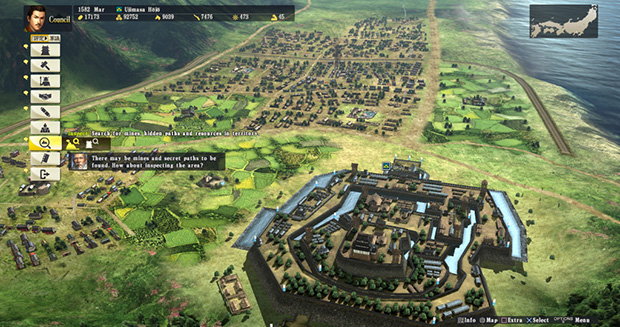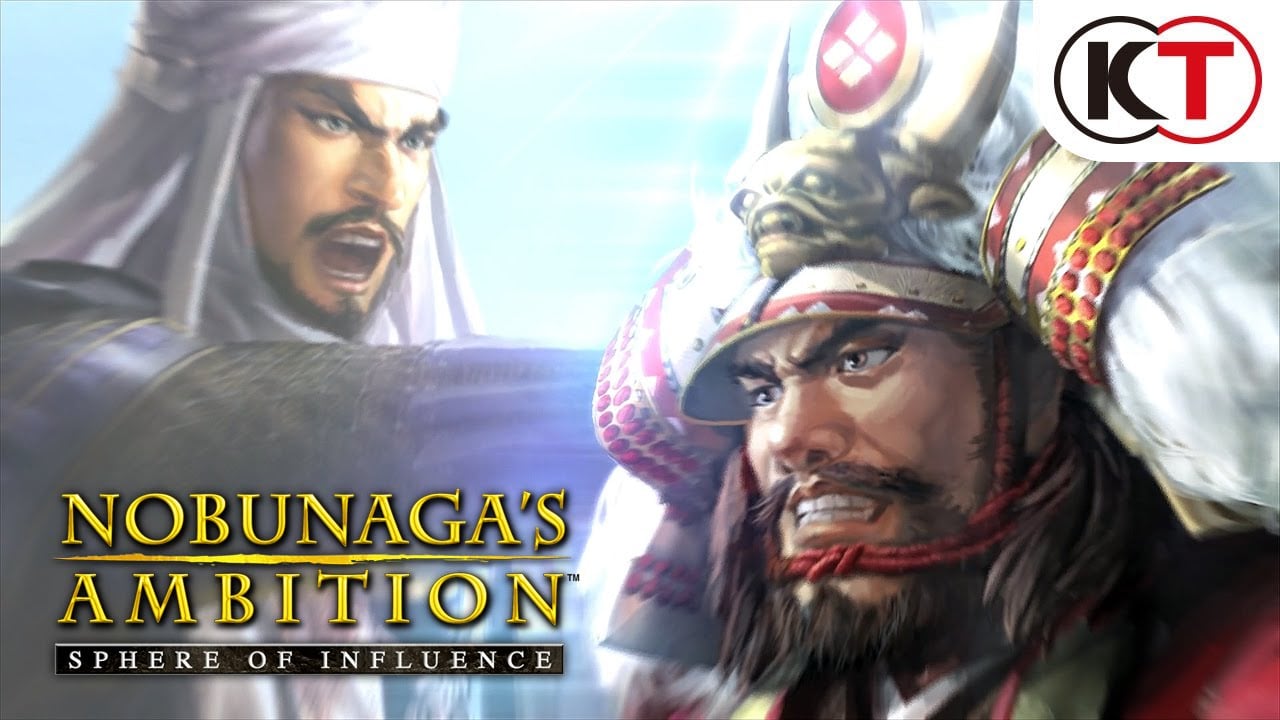RRP: $59.99
Nobunaga’s Ambition: Sphere of Influence is a historical simulation game of conquest and domination. This is a game you will want to free up your schedule to play, since it’s a LONG game. There are several different scenarios you can play, and with each scenario, you can choose to play as any of the factions involved which give you a huge variety of choice in how you wish to start the game, do you choose the ambitious Oda Clan in which you control Nobuhide (father of Nobunaga) and then dominate using your superior retainers, or choose a lesser clan where your power is dwindling and the fight for survival is the top priority.
The game pulls no punches either with the AI able to expand and develop at the same rate as the player, it offers genuine strategical challenge. You will find in the early years of your campaign following the historical quests and upon completing these quests, branching off and trying to conquer Japan at your own pace. However, Sphere of Influence will make you think about every decision you make, whether to slow down and increase development so that you are better prepared, or striking whilst the iron is hot before the enemy can reinforce a position, are all just part of being a great daiymo.

I found the battle system blends perfectly with the pace of the game, because you are allowed time in which to make decisions (council period) whether to deploy troops, improve roads, listen to the people, harvest rice, expand trade districts…the choice is virtually endless. Then when combat arrives, you find that battles can happen on the overworld screen, without intervention, but this could lead to your troop numbers dwindling too quickly before reaching their goal, so you can pause the flow of combat, and decide to control a battle manually, as well as turn the tables using the mass battle function, when several generals are locked in combat in a single area. These battles offer a ton of variables and be the difference in taking over a castle, or losing your most trusted retainers.
The learning curve is fairly steep however, because the game throws a lot of jargon and terms at the player so playing through the tutorial is a must. Playing through the tutorial is tedious, but it’s well structured, introducing one new element at a time, so that the player can become accustomed to each function, so that when you start a new campaign for real, you have a chance to make a name for yourself. Some of the functions aren’t explained in a lot of detail however, so some trial and error is required, for example, one of the first Oda quests involves gaining trust from local tribes in Owari. The tutorial doesn’t cover this, so it is simply a case of working out which of the many options actually has the desired effect, and like with everything else in the game, it takes some time or more than one trip to make it effective. Also, the trust you can gain from a tribe is dependant on the amount of surrounding clans to it, so if you have a clan nearby the tribe you’re trying to gain trust with, you won’t be able to max it out to 100% because the other clans are interfering which also means you can lose trust with that tribe if you aren’t constantly appeasing them. Once you’ve gained enough trust, you gain reinforcements from that tribe during battles, so it has a huge benefit, since you don’t need to directly control the reinforcements.

Now, how you decide to conquer the land is entirely left to the player and will require a multi pronged approach utilising a careful synthesis of conflict, management, and diplomacy. This begins with building up a small province, developing it into a rich, bountiful launching pad that can support a growing empire. The backbone of the realm is the labor force, which is, of course, limited in supply. Daimyos must allocate their workers to projects mindfully, whether that means paving new roads, constructing new buildings, improving fortifications, focusing on trade or food production, the list just goes on and on. Rest assured, manpower is always at a premium.
You only have so many officers to go around to carry out diplomatic missions, govern territories, lead military units, and oversee civic projects; managing the ruling class is of the utmost importance. Individual leaders have varying skills, and knowing how and where to employ them can make a drastic difference in how quickly and effectively a clan enacts the wide swathe of policies these officers must take charge of.
Honestly, I have no more words to describe how good this game is. It’s that strange kind of game that you can’t explain how good it is without playing it yourself. If you enjoy Romance of the Three Kingdoms, you’ll love this. It’s not Total War Shogun 2, because that series heavily concentrated on the combat, whereas this series is more about how you oversee EVERYTHING. Think of the big picture.
[review]








